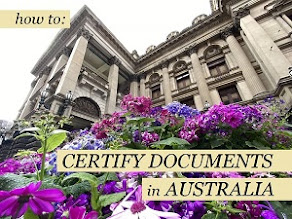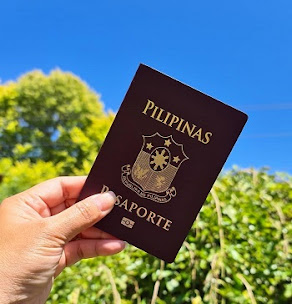Rice is life
For people in rice cultures, rice mean just about everything
that is important:
birth, death, wealth, power, strength, fertility, virility, vitality..
...life itself.
*****
I found these thoughts displayed on one of the walls inside of IRRI’s Riceworld Museum during our recent visit with our friends from DTI-CITEM.
Indeed, RICE IS LIFE.
And whoever counters that thought needs to be exiled!
LOL. Well, it’s a half-joke.
Look how golden this rice field is?!
I am truly thankful to my team, for bringing me here. It was my first time visiting IRRI but I am quite familiar with what they do, thanks to my late father who always shares stories about his college years in Los Banos, and also his days in IRRI.
Am not sure if he did work here (I forgot the specific details) however, each time he’s telling me about it, I could always feel his pride with IRRI. My late father was an agriculturist, reasons why I learned some knowledge about gardening, farming, and the environment - things that weren’t even taught us in public school (ironic isn’t it?).
Somehow, my tour at IRRI Riceworld Museum is quite emotional for me. It’s like I am visiting the museum with my father.
What is IRRI?
Established in 1959, International Rice Research Institute (IRRI) is an international agricultural research and training organization having Los Banos, Laguna as the headquarter conducting research on the rice plant and applied research on all phases of rice production, management, distribution, and utilization. It aims to reduce poverty and hunger, improve the health of rice farmers and consumers, and ensure the environmental sustainability of rice farming.
It was the first in the country and first in Asia, and the world, through the initiative of Rockefeller and Ford Foundation based in New York City. For over half the century, IRRI has provided a home to innovative scientists who had made it their lives’ work to reduce poverty through rice research.
With having offices in seventeen (17) countries worldwide, IRRI is known for its work in developing rice varieties that contributed to the Green Revolution in the 1960s which pre-empted the famine in Asia.
IIRI is also the largest non-profit agricultural research centre in Asia.
In 1994 the IRRI’s Riceworld Museum was opened its door to the public and welcomes many guests like farmers, dignitaries, scientists, tourists, students, and many others.
There is no fee for visiting the museum. Our team arrived almost noontime, and we enjoyed the tour with only our team as their guests!
(after 30minutes and so, the other guests arrive which I noticed are from the IRRI office in the next building).
Registration area during the visit.
On July 10 1963 His Majesty King Bhumibol Adulyadej and Her Majesty Queen Sirikit of Thailand visits IRRI.
You see, rice is not that simple.
You will see these walls with many information all about rice – from the planting to various varieties, origins, etc.
They also showcased the old-school tools and equipment for farming, including various baskets. I think many farmers are still using the equipment especially in rural areas with no budget to fund modern machines.
They also showcased modern rice farming and processing equipment.
I always think that rice farming is more legit having carabao (aka water buffalo) pulling the farming carts!
But now, many farmers are using the modern processors and let Mr. Carabao do the work occasionally.
These are the rice farming tools from various countries with rice cultures. Noticed how humbly stylish they are! IMHO that straw slippers hurt a lot even with socks on.
This one is so huge I bet at least two carabaos could pull this cart!
In Mountain Province, where rice farming is one of the main sources of livelihood, the museum also includes this miniature traditional houses and traditional dresses for the locals. You can also watch some video clips regarding Ifugao’s rice farming.
This cart is of Chinese heritage.
Here you’ll see the list of donors from agencies and institutions from all over the world to help promote the rice culture worldwide.
After our tour, I learned to appreciate more the huge value of rice promotion.
Indeed, rice is life, and we must treasure that culture.
Indeed, rice is life, and we must treasure that culture.
The Philippines have many potential lands for rice farming. Let’s promote the rice culture so that we can minimize the importation of rice.
There is nothing wrong with being a rice farmer. On the contrary, we must value them most. Without them, definitely, poverty will rise up. They are heroes too!
Thank you to the DTI-CITEM team for making this tour happen. You never know how much you made my childhood complete in visiting the Riceworld Museum. I felt that my late Dad’s story is now complete.
xoxo, Blair
IRRI (International of Rice Research Institute) Riceworld Museum
IRRI Headquarters
Los Banos Reseach Center,
Los Banos, Laguna Philippines
Email: info@irri.org
Los Banos Reseach Center,
Los Banos, Laguna Philippines
Email: info@irri.org
Telephone Nos. +632 580 5600 / +632 580 0606















































Rice is life!! LOL! i guess in away thats very true...
ReplyDeleteIt's still true hahaha I manage to control my rice intake but there are many times my spirit is begging for it.
DeleteWe have had a national celebration, celebrating the farmers and fisherman coz they are the unsung heroes of the world.They should be celebrated for their contributions.
ReplyDeleteI agree. I heard they also have, but lack of awareness to the majority of the public. I do hope that will change.
DeleteWahhh..so nice..yes indeed rice for life hahahah..but this is interesting information that everybody should know
ReplyDeleteThank you dear! And glad you like rice as well.
Deletecool! Never knew about this place before! One day must visit Philippines and have this in my travel journey
ReplyDeleteThat will be great. And its FREE ADMISSION :D
DeleteAmazing. I have never been to IRRI but my dad once worked there for a project for DA. I'm hoping I could visit sometime too
ReplyDeleteOh you should Francis! I visited the Museum and it was amazing. I do wish to come back and explore the whole IRRI.
DeleteRice is big in Malaysia - I did not know that it is even bigger in the Philippines to have an international research centre. I guess we learn something new everyday.
ReplyDeleteThank you Emily! I am glad and thankful that my team brought me here.
DeleteLooks so fun! Will pay a visit when i off to Philippines!
ReplyDeleteThank you Ashley! You will like the Philippines!
DeleteI've been to something similar in Sekinchan, malaysia.. very interesting!
ReplyDeleteThanks Isaac! I assume you love rice as well :D
DeleteNice...I have also visited a similar place back in Malaysia. Learning about rice farming is definitely informative :)
ReplyDeleteThat's awesome! I hope I could visit the rice museum in Malaysia as well.
DeleteI love your outfit of the day! The museum looks really cool to visit as well =) Would love to visit it next time!
ReplyDeleteThank you Sharon!
Deletewe have that here at our agro fair too and it sure was interesting to know what processes that our food went through
ReplyDeleteI agree. Planting and harvesting rice is not easy job. I learned a lot after our tour :D
DeleteLooks exciting but it's true. Rice is gold. Amen! Live long. What did you use to click the picks?
ReplyDeleteHello Alex,
DeleteI'm using the Nikon D300 and smartphone Huawei P9.
Great museum. Nice that there's no fee. That way, many people can visit! must be nice to also learn more about modern rice farming and processing equipment. Interesting process! Love the rice faring tools as well.
ReplyDeleteThank you Carola!
DeleteI realized that the old tools in rice farming is quite similar even from other countries. It was very interesting to learn about the concept of from farm to table food.
They should need a need a reservation to visit? Or can we go as a walk in?! And how much the entrance fee?.. thanks!!
ReplyDeleteNO need for reservation, unless you are coming in as a group (like above 10). NO entrance fee!
DeleteWow they really do have a museum for everything don't they! The rice museum looks interesting, especially the tools they use. I know a lot of work goes into producing this delicious grain, so I'm grateful to all that farm it!
ReplyDeleteThank you! I was so glad that I visited this museum, giving me more understand and appreciation about rice farming. How I wish that many of new young generation would have interest to visit this.
DeleteI was just talking about rice with my Indonesian friends here in Texas, U.S.A. I told them that last summer I saw rice field somewhere in Arkansas, but we couldn't stop because there was no exit. Now I bumped into your post about Rice Museum in the Philippines. What a coincidence!
ReplyDeleteYeah, this museum was an initiative of the Rice Research Center (located just a few steps away). The Research Center was the first rice research center in the world.
DeleteNever heard of a rice museum before. But I totally understand the importance of rice in rice cultures since I belong to the eastern part of India. It does make so much sense to have a museum on that. I can understand this must have been an emotional trip for you. But kudos to your dad who worked for such a noble cause.
ReplyDeleteThank you Soumya!
DeleteI remember back then, our garden is our playground! We do gardening, and weekend hiking for tree planting back in grade school until I reach my high school years. I learned about planting and growing vegetation because of him. I am truly grateful.
It seems like there's a museum for everything nowadays! This one looks interesting though and visiting seems like a nice experience. Thank you for sharing
ReplyDeleteThank you for visiting! Entrance fee is FREE.
DeleteRice really is life! It is the main staple in so many countries. It makes sense to have a museum and research on improving this important product.
ReplyDeleteI do hope that the new generation of Filipinos will appreciate this.
DeleteTrue! Rice is life, with brown rice been my favourite. This looks like an experience i'd definitely do given the chance. There are a lot of misconceptions about rice and it's health benefits going round at the moment.
ReplyDeleteThat is true! We can't live without rice :D
DeleteThis is a good place to discover the intricacies of rice cultivation. It is almost there in every tropical country but honestly, never looked at the process so carefully. Your visit throws a new light to this occupation.
ReplyDeleteThank you Ami for appreciating my blog post. Rice are not planted easily, and it is disrespectful to waste it.
DeleteWow!! This seems to be an interesting place. Those rice straw shoes seem unique. You must have felt nostalgic visiting a place where your father spent quite some time.
ReplyDeleteI respect more of our local farmers :D
DeleteThis is pretty awesome. Coming from the eastern part of India I totally understand what rice culture is. Isn't it overwhelming to see how much effort goes into producing the crops and polishing them to give it the form of rice that we consume? Thanks for sharing your learning from the rice museum tour
ReplyDeleteThe new generation should learn and understand the genuine rice culture. And hopefully this could be a means to motivate few to become more rice farmers.
DeleteSometimes it's easy to take for granted rice and how important it is to so many people around the world! I would love to visit this place to gain a better understanding of rice. Somewhere to add to my itinerary next time I visit the Philippines .
ReplyDeleteThank you Rosie, and deeply appreciated!
DeleteIt's interesting to hear how different cultures have an affinity with different types of food. I don't think we share anything similar in the UK where food is easily accessible to the vast majority of the population. Great article and a very interesting place. I'd like to visit there one day.
ReplyDeleteThank you Paul! Hope you visit Philippines and any countries that shares the rice culture.
DeleteWhat an interesting visit! I've never heard of this place and it looks like a great way to learn more about the fascinating world of rice. Definitely something to remember when visiting the Philippines, which I hope I'll be able to do one day :)
ReplyDeleteThough this place isn't modern unlike many popular museums in the city, but this rice museum is very significant.
DeleteThis is interesting. I'd actually love to go to the rice museum! When I was living in South Korea growing up, I remember being mesmerized by the beauty of the rice fields. And just recently I finished reading the book "Outliers" by Malcolm Gladwell. (Highly recommend!) In it there is a section that talks about the precision and hard work necessary for growing rice and how that has impacted life (and math skills!) in Asia. It made me have a whole new appreciation for rice farming. Plus, I like eating the stuff! :) :)
ReplyDeleteIndeed, rice is life! This is the food stable of many Asian countries and other small countries worldwide. I would love to read your book recommendation soon.
DeleteThanks for sharing about this, Blair! I think rice is one of those “basic” foods that we take for granted because it seems so plentiful and such a staple in every household. I must admit I’ve never actually thought about the process by which it’s made or how some people dedicate their entire lives to harvesting rice. I would love to visit IRRI and learn more about the process, see the tools in person, and speak with some rice farmers as well. Loved reading this, and thanks for educating me!
ReplyDeleteI am so happy that you like my post. Learning from farmers about rice farming is something that we should learn. It also teaches about life.
DeleteI learnt about rice cultivation from a local farmer and I was very fascinated how much the farmers work for just a bag of rice. Glad that there's a museum out there to educate people about rice farming.
ReplyDeleteNowadays, we see rice as a source of sugar and many started to avoid the rice culture. But if you eat the rice right, it gives the best experience.
DeleteWell, yeah. Coming from India, rice is my life and I'd gladly exile anyone who counters this! Lolz...
ReplyDeleteI studied about the various aspects of rice varieties and Green Revolution in my college. Interesting to know there's a museusm dedicated to rice!
LOL me too! Rice is part of our Asian culture and heritage. I also learn many rice-related children's stories back then that teaches about life.
Delete